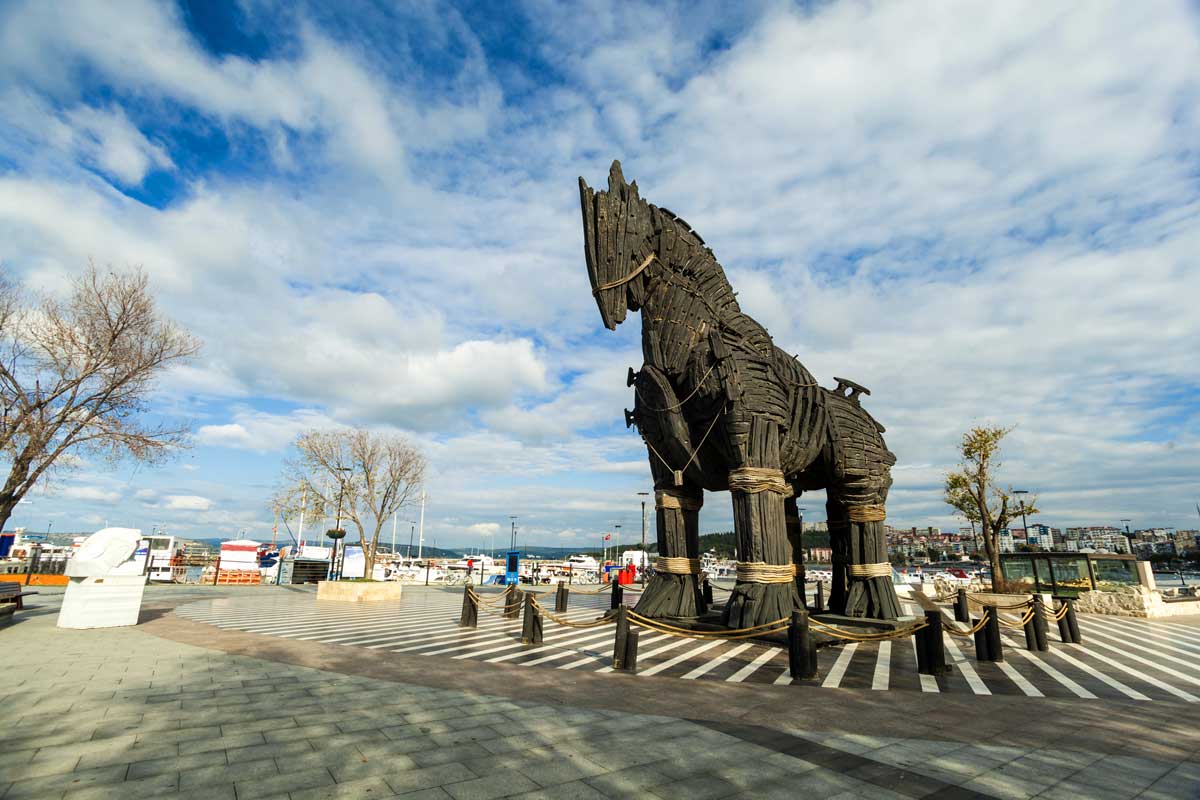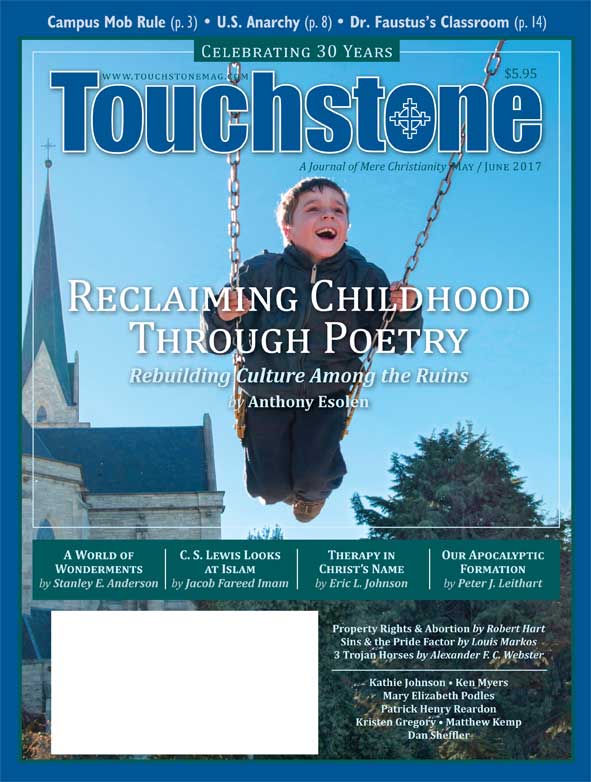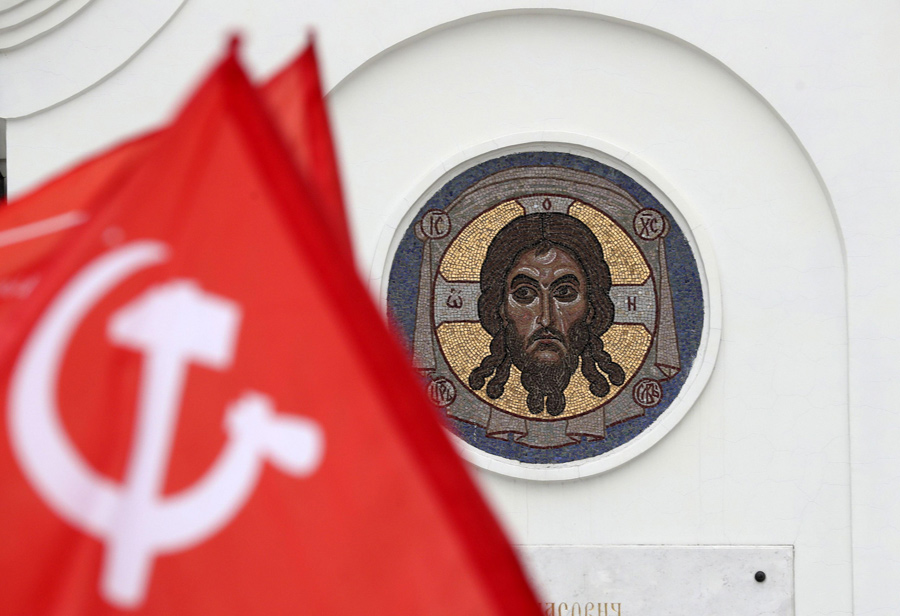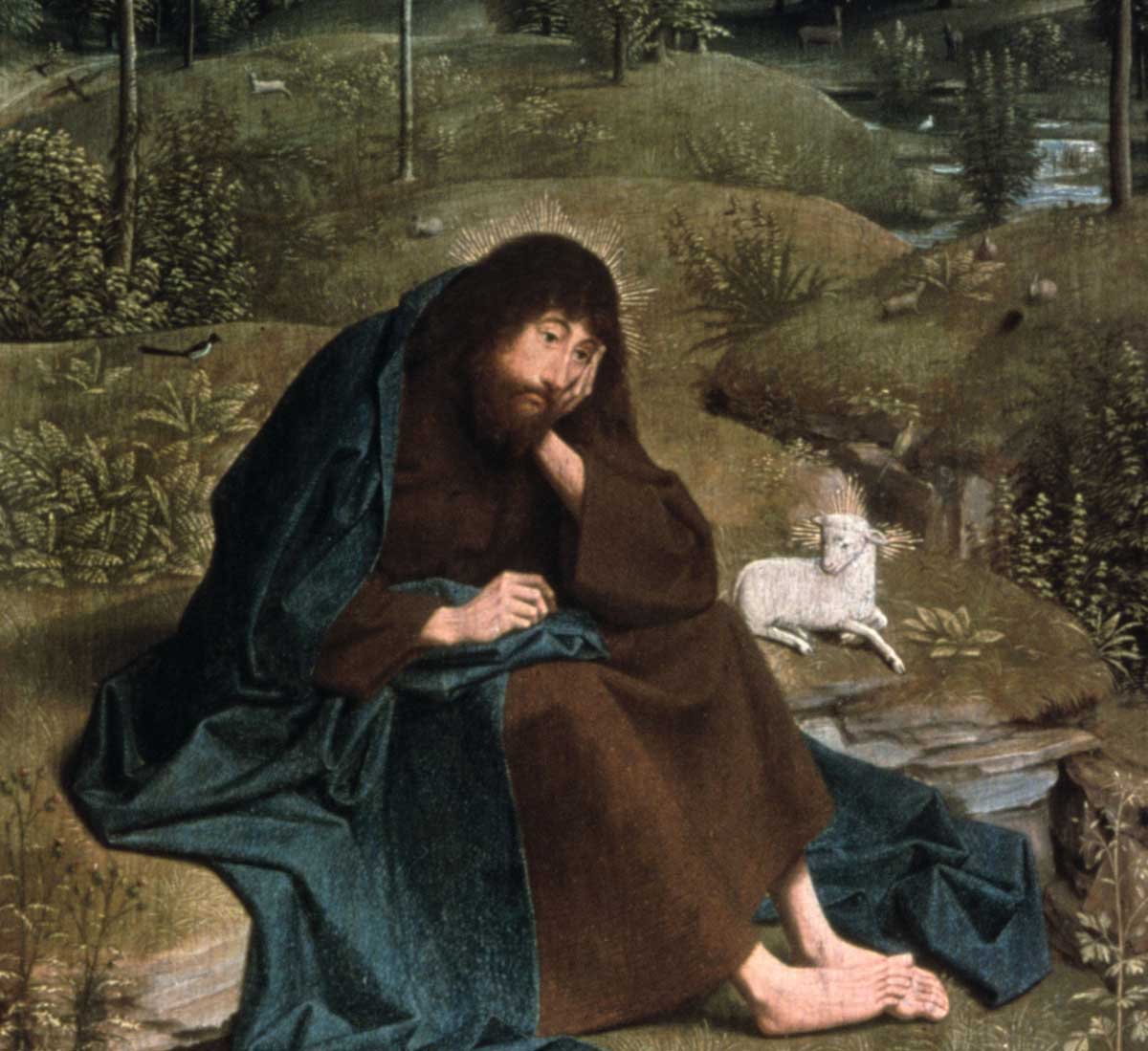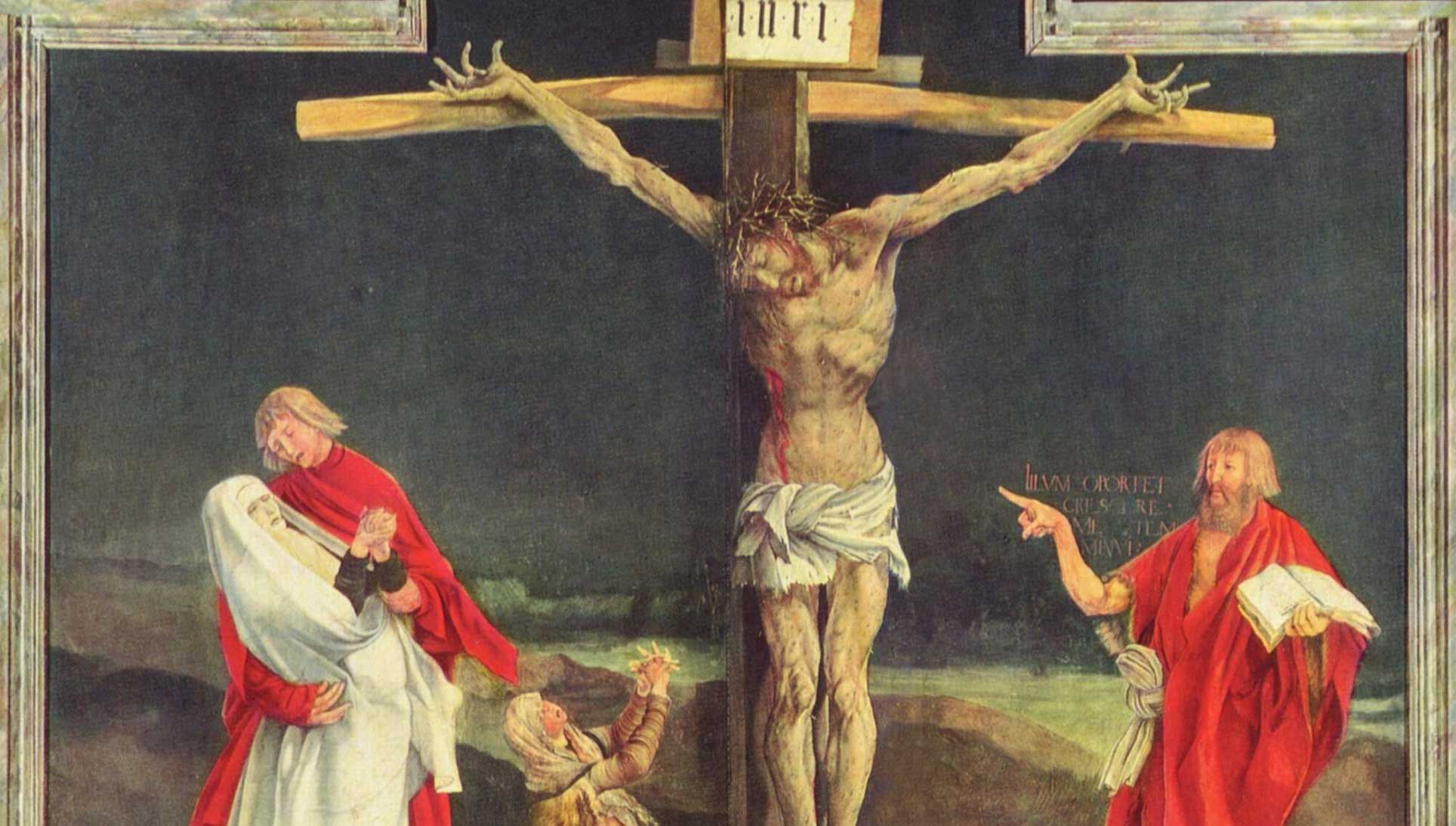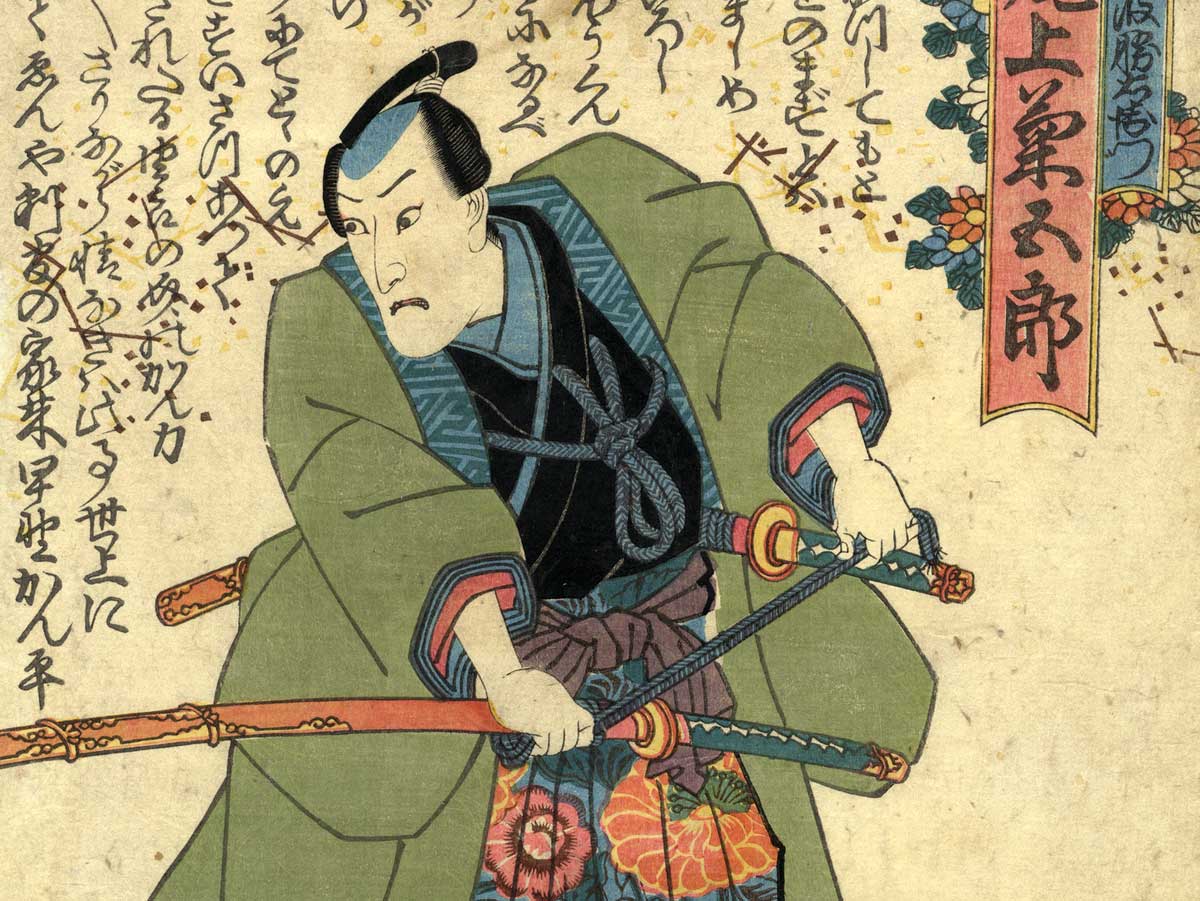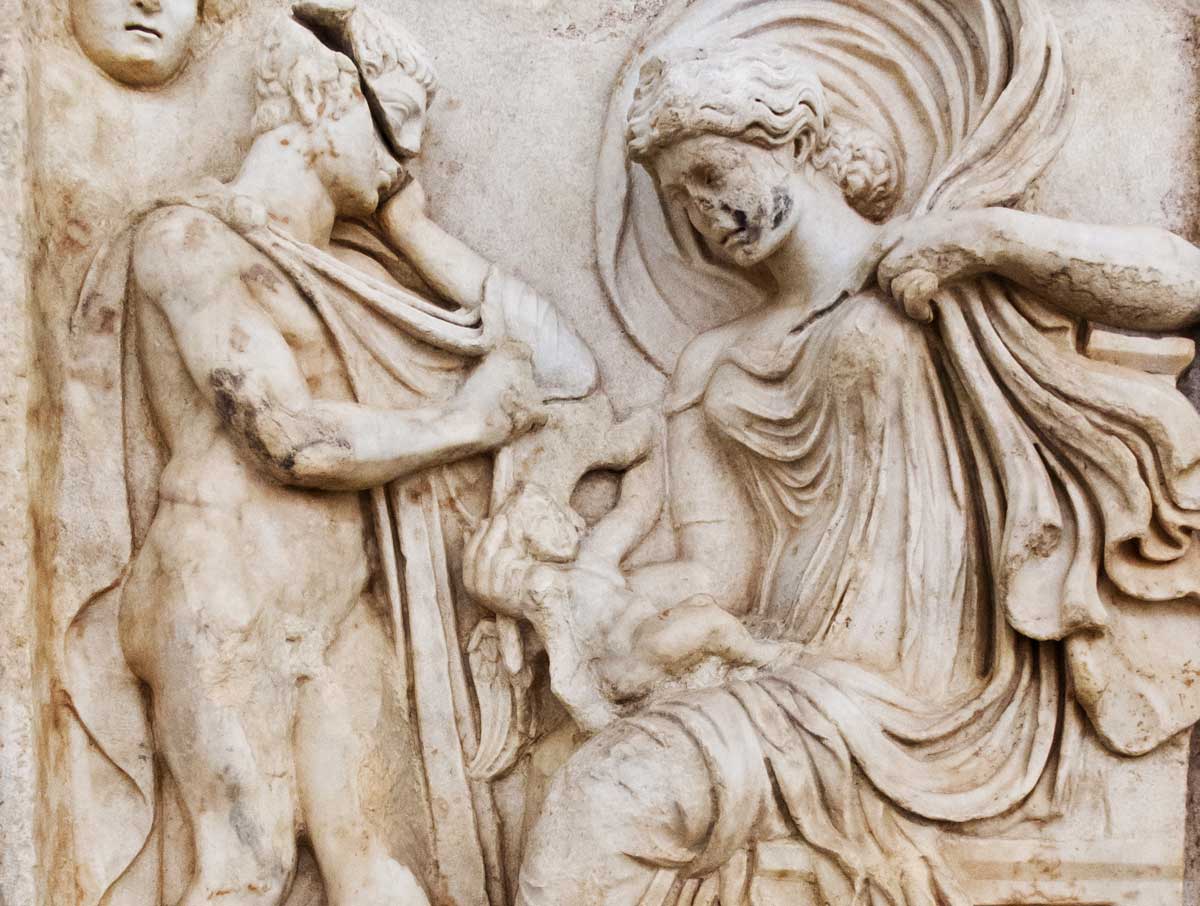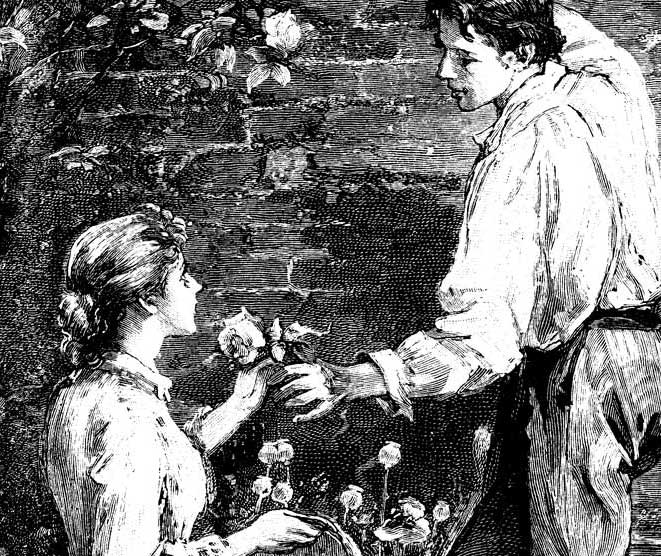Communiqué
Three Trojan Horses
Insider Attempts to Disorient the Orthodox
The benighted Pan-Orthodox Council in Crete in June 2016 reminded Orthodox Christians that the rock of Orthodox faith and practice has been splitting for decades. The fissures are particularly evident among the approximately one million Orthodox Christians in the United States.
What is unconventional about the tone of the conflict is the aggressive ad hominem rhetoric of the avant-garde toward those who insist on unwavering fidelity to Orthodox Tradition. In a community widely known for its conservative approach to religious doctrine, morality, and liturgical rites, innovators would normally maintain a low profile, avoiding unwanted attention and charges of "heresy," while gradually trying to effect "change." Ironically, the Orthodox traditionalists are under assault and on the defensive in America and in a few autocephalous ("self-headed") Churches around the globe.
The Orthodox "left" is waging their offensive on three fronts. Since the vast majority of the Orthodox faithful in this country are unaware of such machinations by the few but determined intellectual elites—clergy and laity—engaged in this spiritual warfare, I shall borrow Orthodox columnist Rod Dreher's use of Homer's "Trojan Horse" as an apt metaphor for the primary tactic of those elites.1 In fact, I intend to triple-down on that metaphor. Like the celebrated tactical ploy of the ancient Greeks, the contemporary Orthodox Trojan Horses appear to be gifts but are, instead, full of clandestine theological warriors poised to sack the Church.
Dismissal of Orthodox "Deplorables"
The first Trojan Horse is the increasing tendency of Orthodox leftists to mimic Hilary Clinton's infamous "basket of deplorables" insult of September 9, 2016, against half of her opponent's supporters. In this case the epithets are born of theological instead of political enmity.
Some of these neologisms seem a bit forced. For example, Aristotle Papanikolaou, Archbishop Demetrios Chair in Orthodox Theology and Culture and Co-Director of the Orthodox Christian Studies Center (OCSC) at Fordham University, has dusted off an ancient Christological heresy. He perceives what he calls "political Nestorianism"—defined as "a politics of dualism, a politics of us vs. them, a politics of demonization"—among American "Christians, including Orthodox, who cannot but see certain political issues as driven by a godless, politically liberal, humanistic agenda."2 That is rhetorical overkill directed at fellow Christians who are, shall we say, more Tradition-minded than himself.
The expletive of choice among the Orthodox left appears to be "fundamentalist." Never mind that term's Evangelical Protestant provenance, dating from 1922, when Curtis Lee Laws took a cue from the publication of The Fundamentals tractates in the previous decade. Never mind that the term began as a badge of honor. Never mind the weird misapplication of it since the 1980s to large swaths of Islam and reactionary elements in other religious communities. The Orthodox left is simply echoing the anti-Evangelical hyperbole of the mainstream liberal Protestant denominations in the National Council of Churches and World Council of Churches with whom they have shared brie and Chablis for so many years.
No less an ecclesial dignitary than Archbishop Chrysostomos of Cyprus (senior bishop of an ancient autocephalous Orthodox Church) fired a shotgun blast indiscriminately on the first day of the recent Pan-Orthodox Council at unspecified anti-ecumenical "groups" whom he blamed for the absence of four entire Churches from the council: "The fundamentalist and fanatic groups, among which are theologians and hierarchs, which to a greater or lesser extent today are active throughout the whole Orthodox world, are a serious reason why a real threat of not only postponing, but even of canceling the Holy and Great Council loomed over it." The archbishop identified the targets of his ire simplistically as those who oppose "any idea of drawing nearer to other Christians."3
Back in the United States, a growing cadre of Orthodox scholars, mostly lay theologians, have, with increasing abandon, dismissed many of their co-religionists as "fundamentalists"—perhaps none more often and harshly than George Demacopoulos, Fr. John Meyendorff and Patterson Family Chair of Orthodox Christian Studies and Co-Director of the OCSC at Fordham University. In a blog post in January 2015 on an official website of the Greek Orthodox Archdiocese of America, Demacopoulos depicted his unnamed theological opponents in overwrought ad hominem smearsas "extremists" and "radical opportunists" who pose an "insidious danger" motivated by "self-promotion." Demacopoulos averred that their "key theological error" is "the presupposition that the Church Fathers agreed on all theological and ethical matters"—a patently nonsensical claim to anyone who has delved into the rich variety of extant patristic texts. Other dangerous trends that Demacopoulos perceives, falsely, include a preposterous insistence "that the Fathers were anti-intellectual"; "the slavish adherence to a fossilized set of propositions," a mere "subset of theological axioms" derived from a "reductionist reading of the Church Fathers" and used as "a political weapon"; and an inevitable "idolatry" in lieu of an "earnest and soul-wrenching quest to seek God and to share Him with the world." Demacopoulos' phrase "soul-wrenching quest" is, on the contrary, a weird post-modern existentialist -distortion of the Church Fathers. Cartoonish does not begin to capture that kind of bizarre, emotive diatribe.4
But what is really behind all the heated rhetoric? A clue appeared in a brief post-council assessment in September 2016 in the mainline Protestant journal The Christian Century by Peter C. Bouteneff, Professor of Systematic Theology at St. Vladimir Orthodox Theological Seminary in New York. He referred to the Orthodox Church as "lagging in its responsiveness to modern demographic realities and to modernity in general."5
Alexander F. C. Webster (Archpriest), Ph.D., is Dean & Professor of Moral Theology Emeritus at Holy Trinity Orthodox Seminary in Jordanville, New York, and Adjunct Professor of Religious Studies at George Mason University in Fairfax, Virginia.
subscription options
Order
Print/Online Subscription

Get six issues (one year) of Touchstone PLUS full online access including pdf downloads for only $39.95. That's only $3.34 per month!
Order
Online Only
Subscription

Get a one-year full-access subscription to the Touchstone online archives for only $19.95. That's only $1.66 per month!
bulk subscriptions
Order Touchstone subscriptions in bulk and save $10 per sub! Each subscription includes 6 issues of Touchstone plus full online access to touchstonemag.com—including archives, videos, and pdf downloads of recent issues for only $29.95 each! Great for churches or study groups.
Transactions will be processed on a secure server.
more on christianity from the online archives
more from the online archives
calling all readers
Please Donate
"There are magazines worth reading but few worth saving . . . Touchstone is just such a magazine."
—Alice von Hildebrand
"Here we do not concede one square millimeter of territory to falsehood, folly, contemporary sentimentality, or fashion. We speak the truth, and let God be our judge. . . . Touchstone is the one committedly Christian conservative journal."
—Anthony Esolen, Touchstone senior editor





